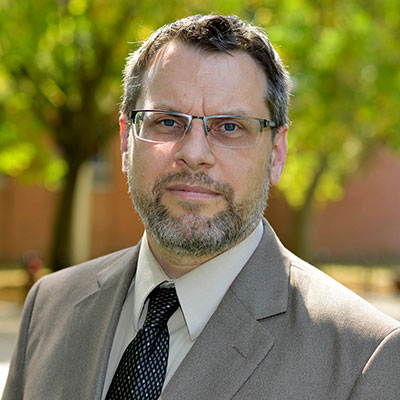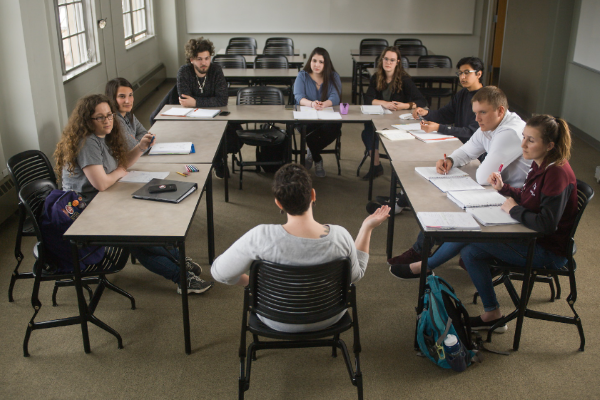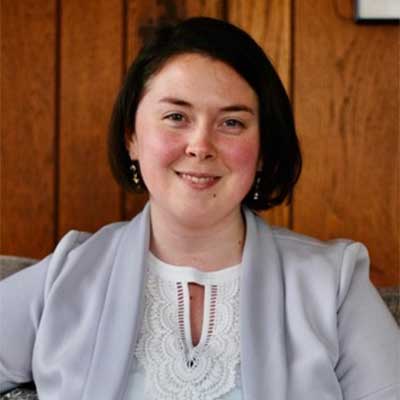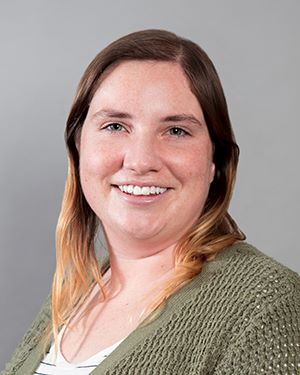The mission of the Master of Arts in Counseling (MAC) program at Aquinas College is
to produce counselors who function as highly skilled and ethical professionals prepared
to work with diverse client populations in a variety of clinical settings. Students
develop their counselor identity through the intersection of instruction, technical
application, research, advocacy, and supervision of not only the MAC faculty but of
our community partners.
Upon completion, students are able to:
- Demonstrate mastery of major counseling theories and skills and show the ability to
utilize them therapeutically in clinical settings.
- Have strong foundational knowledge in the area of human growth and development and
use this knowledge to inform their therapeutic work with individuals, couples, families
and groups.
- Value and respect diversity and demonstrate multicultural competency in their work
with clients from diverse backgrounds.
- Show mastery of skills necessary to work therapeutically with clients who have experienced
crisis, disasters and trauma.
- Possess an adjustment oriented approach that emphasizes not only diagnosis and remediation
of psychopathology, but also prevention, wellness, early intervention, and advocacy.
- Professional Counseling Identity and Advocacy - Students understanding of the history of professional counseling, knowledge of the philosophical
foundations of the profession, knowledge of the roles and functions of counselors,
professional pride/professional engagement, professional advocacy, and knowledge and
understanding of professional ethics.
- Ethical Practice – Students commit to and follow professional ethics with the American Counseling Association
ethical guidelines. They seek supervision/consultation to resolve ethical dilemmas
and take personal responsibility in the event an ethical error is committed. Students
also develop a strong awareness of their own values and worldviews, recognize their
own competencies and limitations, maintain openness to supervision, and recognize/acknowledge/remediate
personal issues that may impact client care.
-
Multicultural Competence – Students develop awareness of power, privilege, difference and their own cultural
attitudes, beliefs, and effects of social location, and learn strategies for working
with diverse populations including gender, sexual orientation, ethnic and other non-dominant
groups. Students develop an ability to recognize the injustices that affect physical,
academic, career, economic, and mental wellbeing of individuals and learn skill sets
to act to alleviate such injustices in their work with clients. Students develop
the ability to be empowering agents and advocates in service as change agents on the
systemic level to better serve underrepresented, marginalized, and oppressed individuals and
groups.
-
Human Growth and Development- Students learn to interpret and apply core theory and research of the nature and
needs of individuals at all developmental levels and in multicultural contexts.
-
Career Development- Students develop understanding on how to apply core theory and research of career
development, the psychology of work, and related factors. Students recognize the
integral role of work in the human experience and wellness. They develop the knowledge
and skills necessary to use assessment instruments and techniques that are relevant
to career and vocational planning and decision making.
-
Helping Relationships – Students develop therapeutic communications emphasize the client-counselor relationship,
and facilitate and manage the counseling process with individuals and groups. Students
develop an understanding of a range of counseling theories consistent with a developmental perspective.
Students develop knowledge of treatment planning and interventions consistent with
their own theoretical orientation, the ability to critically evaluate the research
literature, identify client mental health needs and goals in counseling, diagnosis,
and best practices in the profession.
-
Group Work - Students develop an understanding of the theoretical and experiential foundations
of group purpose, development, and dynamics and understand how to apply group counseling
methods and skills in group settings.
-
Assessment, Evaluation and Diagnosis- Students understand principles of assessment, evaluation, and diagnosis and are
competent to apply practice both individual and group methods of assessment and evaluation
and individual diagnosis.
-
Research and Program Evaluation - Students understand methods and roles of research, statistical analysis, needs assessment
and program evaluation.
The Master of Arts in Clinical Mental Health Counseling (MAC) degree at Aquinas College
is a 60-semester hour program designed to prepare students to become highly skilled
and highly competent mental health counseling professionals. Graduates will be eligible
to become Licensed Professional Counselors in Michigan and other states. Our intimate
and selective program admits only high-quality students for our practice-based cohort
program.

Daniel Cruikshanks, Ph.D.
Professor - Psychology & Counselor Education
Director - MA in Clinical Mental Health Counseling Program
Chair - Department of Psychology & Counselor Education
Email: drc001@aquinas.edu
Phone: (616) 632-2153
Office: Academic Building 224




